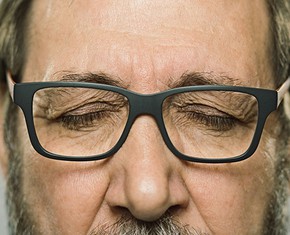The views expressed in our content reflect individual perspectives and do not represent the authoritative views of the Baha'i Faith.
Imagine this: you’re a physicist struggling with a major new theory of how the universe works, and you find the answer in a dream. You’re a novelist looking for a big, original idea for your next book, and it comes to you fully-realized in your dreams. You’re an inventor trying repeatedly without success to figure out how to make a new machine work, and you finally see the solution in a dream. You’re a scientist trying to figure out an experiment to demonstrate how the body transmits its nerve impulses, and your dream provides the answer.
Sound far-fetched? Not hardly. It happened to Albert Einstein with his Theory of Relativity; to Mary Shelley before she wrote Frankenstein; to Elias Howe, the inventor of the modern sewing machine; and to Otto Loewi, who won the Nobel Prize in Medicine for his discovery of the chemical rather than electrical transmission of nerve impulses. They each had pondered over their ideas while awake, only to have the answers come to them while asleep.
Probably thousands of discoveries, creative inspirations and inventions have happened this same way. But not every dream, the Baha’i teachings tell us, will be so productive:
The mind and the thought of man sometimes discover truths, and from this thought and discovery signs and results are produced. This thought has a foundation. But many things come to the mind of man which are like the waves of the sea of imaginations; they have no fruit, and no result comes from them. In the same way, man sees in the world of sleep a vision which becomes exactly realized; at another time, he sees a dream which has absolutely no result. – Abdu’l-Baha, Some Answered Questions, p. 252.
So how do we tell the difference? Most of the science of dreams revolves around a solid working base of research which tells us that we can definitely derive meaning from our dreams. But how can we extract that meaning, and how can we trust it? How do we differentiate between a meaningful dream and a random one? The Baha’i teachings offer us some fascinating clues:
The other manifestation of the powers and actions of the spirit is without instruments and organs. For example, in the state of sleep without eyes it sees; without an ear it hears; without a tongue it speaks; without feet it runs. Briefly, these actions are beyond the means of instruments and organs. How often it happens that it sees a dream in the world of sleep, and its signification becomes apparent two years afterward in corresponding events. In the same way, how many times it happens that a question which one cannot solve in the world of wakefulness is solved in the world of dreams. In wakefulness the eye sees only for a short distance, but in dreams he who is in the East sees the West. Awake he sees the present; in sleep he sees the future…
In the time of sleep this body is as though dead; it does not see nor hear; it does not feel; it has no consciousness, no perception — that is to say, the powers of man have become inactive, but the spirit lives and subsists. Nay, its penetration is increased, its flight is higher, and its intelligence is greater… – Abdu’l-Baha, Some Answered Questions, p. 227.
[Abdu’l-Baha] explained that there were three kinds of dreams: dreams that come from some bodily disorder, symbolic dreams, and those in which future events are clearly foretold. When the soul is in a state of perfect purity it is able, He said, to receive a direct revelation from God. Otherwise, it sees in symbols. – Juliet Thompson, The Diary of Juliet Thompson, pp. 178-179.
Spirit in the human world is the discoverer of the realities of existence. All the inventions, all the sciences, all the hidden mysteries are brought to light through the activity of the spirit on the plane of life. While living in the Orient it organizes affairs in the Occident; while living on the earth it discovers the heavenly constellations. These examples ought to show you that the spirit of life is omnipotent, especially when it establishes a communication with God and becomes the recipient of the eternal light – then it transforms itself into a ray of the effulgence of the eternal sun.
This station is the greatest of all stations, for this connection of the spirit of man with God is like unto a mirror and the sun of reality is reflected in it. Thus it becomes the collective center of all the virtues; its emanation is the bestowal of the king of bestowers; its radiations are the manifold splendors of the infinite luminary; its sanctity is from the highest summit of divine essence. This station is the station of heavenly inspiration and is called the station of the divine grace. It signifies that the rays of the sun of reality are resplendent in the mirror and the attributes of the sun of reality are reflected therein. This is the ultimate degree of human perfection, for the attainment of which the thinkers and philosophers of all time have longed and poets have dreamed; it is the mystery of mysteries and the light of lights wherein the spirit becomes eternal, self-subsistent, age-abiding. – Abdu’l-Baha, Divine Philosophy, p. 166.
As to truthful dreams: I beg of God that thy inner eye (insight) may be so opened that thou mayest thyself differentiate between truthful and untruthful dreams. – Abdu’l-Baha, Tablets of Abdu’l-Baha, v1, p. 195.
These passages from Abdu’l-Baha liken the aware, alive and well-developed human spirit to a polished mirror, able to reflect the glory of the sun. “The station of heavenly inspiration,” Abdu’l-Baha calls it, suggesting that the mirror of the human soul has the power to absorb and accurately reflect the light of spiritual truth and guidance—when we continually clean and polish the mirror.
You May Also Like
Comments


















A wonderful site which if not fully authoritative surely is sanctioned to some degree by the Baha'i International Community in New York or by the Universal House of Justice (Haifa) itself or by its Research Department???
It's the degree of authenticity and-or authoritativeness or if you like 'the devil in the fine print' appearing as commentary and-or interpreting that continues to puzzle this amateur.
In the same vein that we mayest differentiate between truthful and untruthful dreams how may David's readers differentiate between his truthful ...observations presented here with academic precision and also with warm feeling (no mean feat) vis-a-vis his unintentionally untruthful views - given that no one eloquent expounder is omniscient or perfect???
You'll notice that there's no suggestion on my part that David lies. I mean, a world of difference separates an untruth from a lie.
Baha'i love
Paul